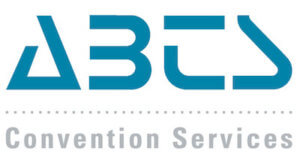In January this year, when new compliance codes in Europe regulating medical-device companies went into effect, it created a major ripple in the U.S. — with a large percentage of medical-meeting attendees coming from international markets, the regulations present new challenges to U.S.-based medical meeting planners.
The new regulations — implemented by MedTech Europe and APACMed, the de facto authorities for European, Middle Eastern, and Asia Pacific medical-technology health-care companies — affect any medical meeting with international attendees sponsored by medical-device companies. Last year, Patricia Andrade, vice president of marketing and communications at ABTS Convention Services, told Convene that their medical-meeting clients were expecting about 30 percent of their delegations to be at risk for 2018. ABTS has been working to prepare organizations for this shift, so that medical meetings can mitigate their losses when they have high numbers of international attendees.

The Annual Scientific Sessions meeting attracts a global audience.
Here’s how things went for the Hearth Rhythm Society (HRS), which held its Annual Scientific Sessions meeting in May:
“We anticipated a significant reduction in our attendance for the 2018 meeting,” Christina Wurster, HRS chief revenue officer, tells PCMA. “Therefore, we focused on conservative projections and budgeting, and we were aggressive in our expense management ahead of the meeting.”
HRS has more than 6,500-plus members in more than 70 countries and the Annual Scientific Sessions meeting typically has attracted approximately 7,500 scientific attendees and more than 12,000 total delegates, roughly 40 percent of whom come from outside the United States. Using attendee surveys and a board-appointed task force, the group adopted a thorough pre-conference approach in order to minimize the impact of the new regulations. While the organization had anticipated a 25-percent reduction in attendance, it saw a 9-percent reduction overall, and a 12-percent reduction in registration revenue, with international group registrations dropping 33 percent. The largest drop was in attendees from Western Europe.
“For the first half of the year, the meetings — like HRS — that were proactively reaching out to their partners and discussing the best actions were less affected,” Andrade tells PCMA. “Awareness of the regulations and reactions are very important.”
“The biggest challenge was the lack of preparation and communication within the medical manufacturers,” Wurster says. “They were not prepared for it, had no processes in place, and their compliance departments were not in communication with their sales and marketing leadership. So many companies did not provide any support for travel scholarships. Ethical MedTech [MedTech Europe’s compliance portal] also did not respond to communications from HRS when we encountered issues or had questions.”
Moving forward, HRS plans to continue an “aggressive communication and awareness effort” to help physicians obtain travel grants. “We expect it will take a couple years for the field to adjust to the new regulations,” Wurster says. “HRS will continue to forecast conservatively and work with our program committee to develop an innovative program and create an experience for attendees that is high value and something they cannot miss.”

HRS plans to continue an “aggressive communication effort” to help physicians obtain travel grants.
Similarly, ABTS will continue serving international groups attending HRS and other meetings through sponsored educational grants. “We know what sponsored international groups are looking for and we work tirelessly to make sure all their requirements are met,” Andrade says. International groups are often looking to stay within a very specific budget and structure: 5-star, luxury, and resort hotels (meaning a hotel which is part of a complex offering significant recreational, amusement, or sporting facilities) are prohibited, as are additional resort and entertainment fees, because the sponsor cannot cover them. Additionally, France and Belgium have a specific 250-euro per diem limit for hotels — for Europeans, per diem costs must include taxes and fees.
There also are new laws and regulations that affect international medical meetings being implemented all the time. “The new General Data Protection Regulation (GDPR) just went online, and that means that medical associations, medical meeting planners, and everyone else in the industry just had to update privacy policies and how they manage their attendees,” Andrade explains. According to GDPR, meeting organizers now have to get opt-ins from Europeans and develop new ways to protect their personal data. “GDPR completely changes the way you manage not only your data and your relationship with your attendees, but also your relationships with all your local sponsors, vendors, and members. We expect contracts that outline permissions of data usage to span the entire industry.”


